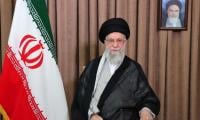Reviewing the verdict
After a highly politicised few days on the road to Lahore, former prime minister Nawaz Sharif has exercised his legal right to ask for the review of the July 28 verdict in the Panama Papers case. The petitioner has also requested a stay order on further implementation of the verdict until a decision of the petition is announced. If the matter proceeds further and is allowed by the courts, all eyes will be on the Supreme Court and how it handles the review process. But this much can be said: the verdict that disqualified Nawaz Sharif from holding an elected office has divided the legal and political community on legal grounds as well as its political implications. The review petition has asked a number of legal questions – many of which had already been aired by legal experts. One of the points raised has been that of the former PM being disqualified without getting a regular trial. As was raised by commentators after the verdict, the petition also questions how five judges could have delivered the verdict when only three judges had ordered and examined the JIT report. It also questions how two judges could have signed two opposing final judgments. Since the disqualification was based on an ‘asset’ not having been declared, the petition has also challenged the definition of ‘receivable income’ that was used in the SC judgment. Many legal observers have also pointed that out, saying that the original case was about the Panama Papers and not about a technical definition. The petition has also expressed scepticism over the role and authority of the JIT members and has then gone on to wonder about the legality of an SC judge supervising the NAB investigation into the former PM and his family. There is a strong possibility that this petition will now be followed by a request for either a full bench review or at least a larger bench review.
Many commentators think that the SC will need to take up the review petition in a fair and legally sound manner because the SC had promised a judgment that would stand the test of time. Perhaps for this sake, the SC would be willing to answer the many questions being asked regarding the legal basis of the judgment. There are legal observers who find many of the special procedures and exceptions made in this case rather unnecessary. Legal experts have insisted that using Articles 62 and 63 to disqualify Nawaz Sharif was unnecessary and has ended up opening a Pandora’s Box for the democratic future of the country. The opinion is that it would have been better if the former PM had been removed once the charges against him had been firmly established in the original case. The SC judgment has led to heated discussions about constitutional change, with the political community worried about the perceived lax criterion that now exists for disqualification. What is obvious, though, is that we need to know what the true impact of the whole affair will be on the evolution of democratic institutions in Pakistan.
-
 Kelly Osbourne's Mom Sharon Receives 'shut Up' Call Accepting An Award For Late Hubby?
Kelly Osbourne's Mom Sharon Receives 'shut Up' Call Accepting An Award For Late Hubby? -
 Claude Overtakes ChatGPT On Apple App Store After Pentagon Dispute
Claude Overtakes ChatGPT On Apple App Store After Pentagon Dispute -
 What Happened To Ayatollah Ali Khamenei's Family During US -Israel Attack On Iran
What Happened To Ayatollah Ali Khamenei's Family During US -Israel Attack On Iran -
 BRIT Awards 2026 Winners Revealed
BRIT Awards 2026 Winners Revealed -
 Shia LaBeouf Arrested Again In New Orleans On Additional Battery Charge
Shia LaBeouf Arrested Again In New Orleans On Additional Battery Charge -
 Shamed Andrew Upset With THIS Family Member Over Current Condition
Shamed Andrew Upset With THIS Family Member Over Current Condition -
 Michael Jackson Estate Sued With Allegations Of Years Of Abuse From Late Singer
Michael Jackson Estate Sued With Allegations Of Years Of Abuse From Late Singer -
 Meghan Markle Shows ‘real Pain’ With Her Body Language In Jordan
Meghan Markle Shows ‘real Pain’ With Her Body Language In Jordan -
 Jennifer Garner Names Her Movie That She Hasn't Seen In Full Since Its Premiere
Jennifer Garner Names Her Movie That She Hasn't Seen In Full Since Its Premiere -
 Bridgerton’s Michelle Mao On Facing Backlash As Season Four Antagonist
Bridgerton’s Michelle Mao On Facing Backlash As Season Four Antagonist -
 King Charles Gets New ‘secret Weapon’ After Andrew Messes Up
King Charles Gets New ‘secret Weapon’ After Andrew Messes Up -
 Shia LaBeouf Makes Bold Claim About Homosexuals In First Interview After Mardi Gras Arrest
Shia LaBeouf Makes Bold Claim About Homosexuals In First Interview After Mardi Gras Arrest -
 Princess Beatrice, Eugenie ‘strained’ As They Are ‘not Turning Back’ On Andrew
Princess Beatrice, Eugenie ‘strained’ As They Are ‘not Turning Back’ On Andrew -
 Benny Blanco Addresses ‘dirty Feet’ Backlash After Podcast Moment Sparks Online Frenzy
Benny Blanco Addresses ‘dirty Feet’ Backlash After Podcast Moment Sparks Online Frenzy -
 Sarah Ferguson Unusual Trait That Confused Royal Expert
Sarah Ferguson Unusual Trait That Confused Royal Expert -
 Prince William, Kate Middleton Left Sarah Ferguson Feeling 'worthless'
Prince William, Kate Middleton Left Sarah Ferguson Feeling 'worthless'



